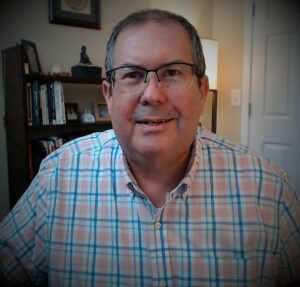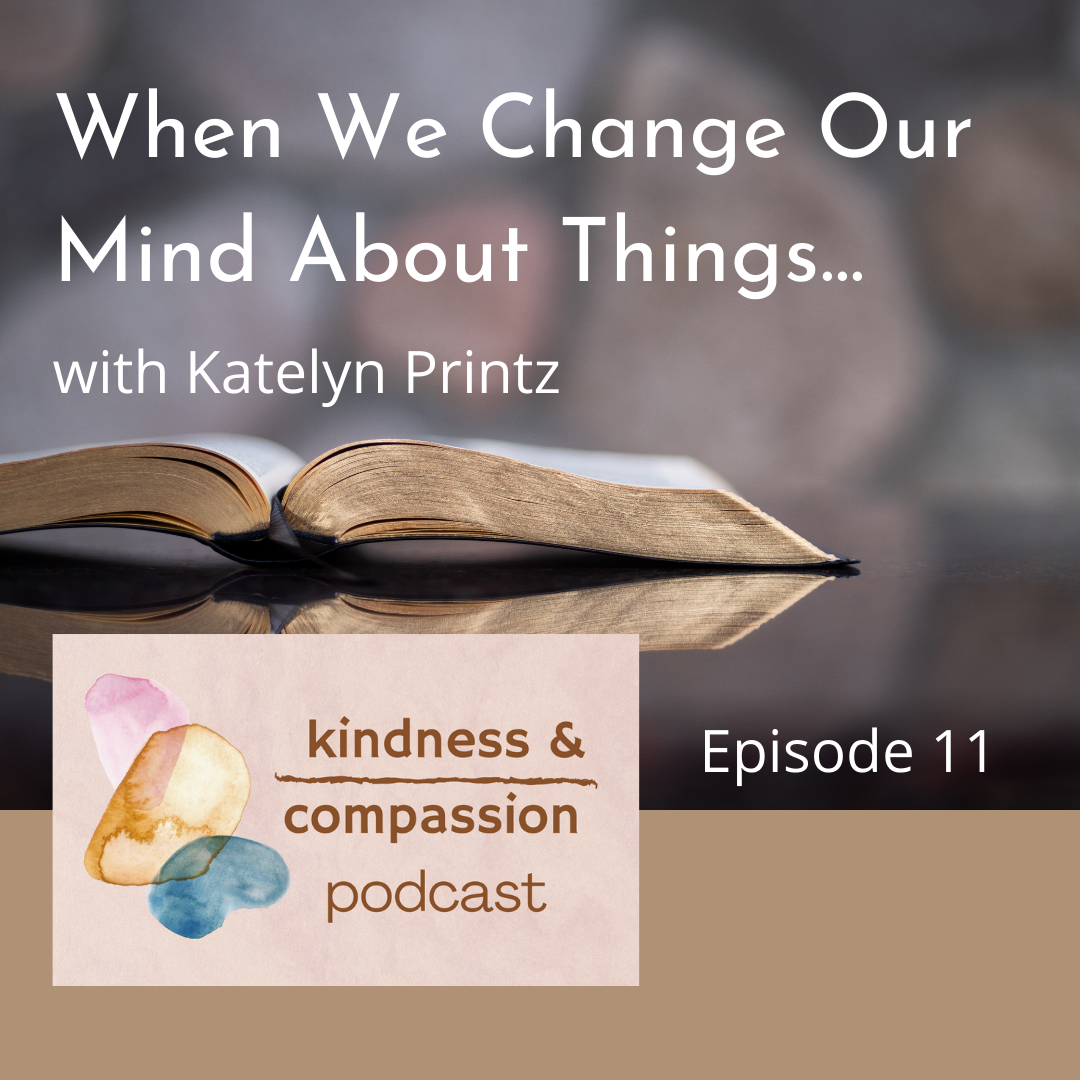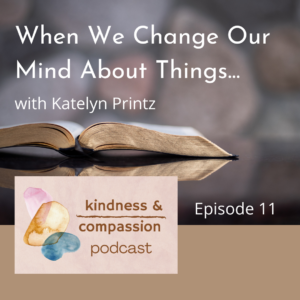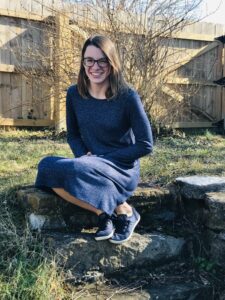In this episode Wendy Posillico joins Gordon in a conversation about how it is important to sometimes challenge our beliefs about ourselves and the world around us. Our mindset has everything to do with how well we can tap into our talents and unique gifts as people. Hear Wendy’s story of transformation and how she changed her mindset about herself and the direction she was going in her life. Also learn the questions you should ask yourself to begin your own transformation.
Meet Wendy Posillico
 Wendy is a former golf professional. She played as a touring professional and a teaching tour, touring pro. She is now a high performance mindset coach. She is the owner and founder of Live Your June. Her goal is helping people become aware that they have a unique gift. She wants to create the space to allow you to 1t. She works with all types of clients from athletes to entrepreneurs, to moms that have left the working world. She is passionate about helping people find their uniqueness and taking that uniqueness to explore who they are. And in their own unique way they can make their impact in the world and for future generations.
Wendy is a former golf professional. She played as a touring professional and a teaching tour, touring pro. She is now a high performance mindset coach. She is the owner and founder of Live Your June. Her goal is helping people become aware that they have a unique gift. She wants to create the space to allow you to 1t. She works with all types of clients from athletes to entrepreneurs, to moms that have left the working world. She is passionate about helping people find their uniqueness and taking that uniqueness to explore who they are. And in their own unique way they can make their impact in the world and for future generations.
Her Passion to Help Comes from her Past
Wendy grew up in New York. She is one of 6 in a big Italian family. She’s a middle child. At the age of 10 she knew she had athletic ability and she could go somewhere. She remembers telling her mom she wanted to be a tennis pro. But her mom’s plate was full with 6 kids. At that time her athletic dream ended. After that, Wendy said she really struggled in school. She says she was in “survival mode” She remembers not having any passion or guidance. “I didn’t have anybody who believed in me and or asked me questions to make me explore.” After her master’s degree she knew there was something deep inside of her that was missing. She knew she had to explore what that missing piece was, even though she did not have all the answers. She remembers having a good teaching job but then thinking “Is this as good as it’s going to get?” At this time Wendy did not feel alive.
An Opportunity to Make A Change
Along came some feedback that started to change her beliefs. She was 28. While she was on spring break she went to play golf with her mom and dad. As she was hitting the ball she remembers another golfer watching her. He shared with her dad, “She’s really good.” They continued playing and somebody else mentioned that she really had talent. Something inside Wendy clicked. She thought maybe this is her second chance. She began to question if this was her opportunity.
Sometimes You have To Listen
Wendy had no idea how to take advantage of this opportunity. She says that sometimes you have to listen to the Instinct that is speaking to you, even though you have no clue where it is taking you. Even if the calling seems crazy. Sometimes you have to just walk towards it. Wendy started walking towards her opportunity and that’s when her mindset started to change. She began to wake up and become more courageous about taking a risk. Over the next seven years she learned life lessons that gave her confidence and courage. These lessons were learned after her first steps.
Train Your Mindset
Wendy says people are not trained in fueling and developing their mindset. People train their bodies to be their best. People trained their brains to learn a vocation in schools. But the important skill of training your mindset is not taught. Learning about mindset is all about how it aligns with who we are. Sometimes we don’t even realize what we have been thinking. Thoughts are coming from every direction and it’s difficult to unwind the thinking and make sense of it.
Seven Questions to Help you Discover Your Mindset
When he believes everyone has a backstory. There are reasons for the current mindset you possess. In order to build positive mindsets like courage and confidence she believes you have to understand and explore people’s stories.
Here are seven questions to help people discover their mindset:
-
-
- What made you strong?
- What made you stand for something?
- What are your stories of success?
- What are your stories of failure?
- What or who influences you?
- What makes you want to draw to that person?
- What is in the character of people you want to be around? Why?
-
Learn More
You can learn More about Wendy and her Performance Coaching at Live your June.
Instagram: @liveyourjune
Gordon (00:59):
Awesome. Well, hello folks, and welcome again to the kindness and compassion podcast, and I'm happy for you to get to know today. Uh, Wendy Silco and Wendy. Thanks for being here.
Wendy (01:15):
I am so happy to be on the podcast with you. I mean, kindness and compassion podcast. It has such a great message.
Gordon (01:22):
Oh, well, thanks. Thanks. And, um, as I was getting to know Wendy before, um, we started recording, I think you're gonna really enjoy kind of hearing her thoughts and just really how, how she's landed on this whole topic. But Wendy, as I start with everyone, why don't you tell folks a little bit about who you are and how you've landed, where you've landed?
Wendy (01:45):
Gosh, how I've landed, isn't it a journey, right?
Gordon (01:48):
Wendy (01:49):
So, um, so as I mentioned, I am a, um, mindset coach. Um, I work with all types from athletes to entrepreneurs, to moms that have left the working world. Um, CEOs, I just, I really am passionate about, um, helping people find their uniqueness and making, taking that uniqueness, taking any influencers that help them to explore who they are so they can make their impact in the world and for future generations. And really how I got here is I was really lost in my, um, I was a super athlete, but I was very shy and I played division one lacrosse, but once sports was done, I was lost in my twenties and I didn't really have direction. I did what I was supposed to do. Um, you know, it looked good on paper. I had my master's, I was teaching in Harlem, but, um, something inside of me I knew was missing and through the journey of taking up golf at the age of 29 to become a professional and going that route of where I had to explore myself through a sport, um, I really discovered more about myself than ever before. Mm-hmm
Gordon (03:28):
Right, right. Yeah. So what, um, what you, you had mentioned that you really kinda grew up with maybe a different mindset. And so what were some of the things that happened for you that caused you to kinda begin to change your mindset or begin to look at at life a little differently?
Wendy (03:51):
Yeah. I mean, I, first of all, I grew up in New York. I'm one of six in a big Italian family. I'm in smack in the middle mm-hmm
Wendy (04:38):
So I really struggled in, in school. Um, so I was just in survival mode in school. I really didn't have a, like any passion. And so my twenties, I just, I, I was trying to put a finger on where to go and I didn't have any guidance. I didn't have anybody who believed in me or asked me questions to make me explore that. And it was after my master's, I think this is what you're asking. Like, where did it shift? It was like, there was something deep inside of me that I knew was missing. And I knew I had to explore it, even though I didn't have the answers. I had no clue what it was, but there I was in Harlem with my masters, had a great job, but I remember my head going is this is, is this as good as it's gonna get?
Wendy (05:23):
And there's nothing wrong with being a teacher. It's just in my soul. I didn't feel alive. Mm-hmm
Wendy (06:09):
Like, is this my opportunity? I had no idea how to get there. Like, I, I didn't, I, when I think back of making that decision, I'm like, what? But sometimes we have to listen to our instinct that that's speaking to us, even though we have no clue, or it seems crazy mm-hmm
Wendy (07:01):
Because you could fail. Like I never made it to the LPGA after seven years, but the lessons I've learned about myself has given me confidence, courage. Um, it's, I've met amazing people on the road. So, you know, when you, I, I mean, just your listeners, whether it's you that have this instinct, that's coming up for you listening to this, or you hear someone else, um, say something that seems bizarre, like why would they wanna go be an artist that's such a hard road mm-hmm
Gordon (07:42):
Right. Right. Well, I think there's a, you know, that several things, as you were saying, all of that Wendy kind of came up for me is that I think a lot of times we kind get kind of blinders and we kind of get locked in just to certain way of, of seeing things. And sometimes it takes the kindness of others to point out things that we might be missing along the way mm-hmm
Wendy (08:46):
A hundred percent. And I, I, first of all, you're when it resonates with me because we all can get so we can be, so sometimes we're so kind to everybody and we forget to be kind to ourselves. Mm-hmm
Wendy (09:36):
Everybody's trying to do their best. I really believe that from my heart. Right. Um, but I will say like the, the, the one thing about mindset is we're not taught that we're trained to teach like craft in schools and we're trained to teach, to train our body, whether it's fueling our body or working out or staying in shape, but we're never trained our mindset. I mean, very, we're just crossing the edge of this, of getting more mindful and learning about how we think, but learning mindset is all about how we think and how does it align with who we are. Right. Um, so, you know, I, I think this is a, it's, it's a really important skill to have, and everyone needs to find someone to help them explore. Cuz sometimes we, we don't realize what we're even thinking. Mm-hmm
Gordon (10:42):
Right, right. Yeah. So somebody that's listening to this is thinking, uh, hopefully it's cutting their, their wheels turning, as I like to say, uh, uh, of thinking about how they think about things, where in your work with people, where do you start with them to get them to kind of maybe,
Wendy (11:00):
Yeah. Look at that, uh, such important thing. Uh, cuz I think in mindset we can get caught up with like, okay, how do you build confidence? How do you build this? How do you build this? Um, I believe you have to start with the individual and who they are, their essence. So I, I really go into going back into your stories. What made you strong? What made you stand for something? Because something makes you do certain things or say certain things and really revisiting stories of success and failure. Um, so you can learn, I go into also getting people to go. Why do you gravitate to that person? What, who influences you? What, what makes you want draw to that person? What is in their character? How do they walk? How do they talk? So getting a little clearer of like why you get attracted to certain people and also the strengths that have made you, who you are today.
Wendy (11:58):
Mm-hmm
Gordon (13:02):
Right. Yeah. And that's a, the, the, the whole importance of getting, knowing yourself well is, is really in my mind that kind of the key to mindfulness and my being able to change your mindset of really, you know, like you said, getting at the essence of who you are and you know, why you think about the world, the way that you think about it.
Wendy (13:26):
Yeah. Yeah. And, and especially like, you know, I went after being a athlete for seven years, busting my tail, missing things sacrificing. But like when I know who I am and if I fail, I'm still okay with it. Like I think there's so many people, whether it's a job or a marriage and then when something doesn't go the way you expected and you don't know who you are, you can crumble fast mm-hmm
Gordon (14:10):
Yeah, yeah. I, to, I totally agree. You know, the other, other thing that I thought about as you were, as you were talking was, um, just the, you know, most of us don't I think sometimes go about the task of changing something kind of kicking and screaming. We get, we get locked into a comfort zone that we will, we will clinging onto, but yet at the same time, we it's a, it's a crazy phenomenon is that people will be miserable in their comfort zone and not really want to get out of it. And so, you know, always, always tell folks that, you know, my work as a therapist, always tell folks, you know, you know, if you want your life to change, you have to change something. And so being able to have the courage to make changes, um, is, is, is really kind of the key to, to it all to some degree,
Wendy (15:12):
A hundred percent. And it's, it gives you power. Mm-hmm
Wendy (16:04):
Like, just go explore. That's why I say it's to get your soul, to disrupt your norm. Doesn't mean disrupt it, like, like a tomorrow I'm gonna quit everything and start, you know, like it take those things, little steps and inside you'll know what the direction, the right direction mm-hmm
Gordon (16:58):
Yeah. Yeah. And I would add to that curiosity as well. Yep. Yes. Yes. Getting curious about things and really, uh, I love the word explore as well. Just really kinda looking at those, those things. You know, the other thing that you mentioned, uh, Wendy, um, is just with change, you know, none of us grows unless we get outside our comfort zone. And I I'm, uh, you know, one, one metaphor that I like is if it, for those of us that can maybe remember when we first learned to ride a bicycle, um, how scary that felt. Uh, but you, in order to learn to ride a bicycle, you had to get outside your comfort zone. You had to kinda, kinda push yourself through the uneasiness of, uh, feeling like you're gonna fall. And that the truth of the matter is, is once you kind of get it, you figure out, oh, the faster I go, the easier it is to control this thing. Yeah. And so, yeah,
Wendy (18:00):
I mean, it's funny, uh, that you mentioned this, I think learning from kids is so important to just like, look back, watch them mm-hmm
Wendy (18:43):
So we all, like, we all go into that scary moment. I'm not a fan of going on, live on, you know, videos, but I know the more I do it, the more I learn. Right. Um, you know, so it's just it's as adults. We, I feel like we weren't trained to learn to teach that muscle mm-hmm
Gordon (19:33):
That's right. So it is the only way that we only way that we grow the, the other, the other thing too, is, is that, um, to kind of connected to this is, is vulnerability. Um, mm-hmm
Wendy (20:18):
Yeah. And I also, I also think, I believe that we, as, as leaders, the more vulnerable I am, then it opens up my clients to, if I share something mm-hmm
Gordon (21:45):
Yeah. And that's a, and, and too, as people have maybe heard in previous episodes of this podcast to, to me, the sign of a healthy relationship with anyone is their ability to be vulnerable with each other. And that be a safe space in doing that because when two people can be vulnerable with each other, that's what builds connection. And that's what brings us together.
Wendy (22:13):
Yeah. I mean, and it goes from your work as your clients and mm-hmm
Gordon (22:57):
Yeah. That's absolutely true. And, and that brings us full circle around to kindness and compassion. I think in that when we can create a safe space for other people, that's what is going to heal the world really in the long run is to be not. Yeah,
Wendy (23:14):
Yeah, yeah. Yeah. I, I agree. And, and a safe space to, for everyone to have their, I just listened to a thing from Kobe Bryant last night. Mm-hmm
Gordon (23:51):
Oh, awesome. I love it. Awesome. Well, Wendy, and I know what, uh, we could probably spend a whole day talking about this stuff, but I wanna be respectful of your time. Tell folks that want to learn more from you and maybe some of the coaching that you do. How can, how can they get in touch with you?
Wendy (24:10):
Right. Um, well, um, my, my business is called live your June. Um, I didn't really give you the backstory mm-hmm
Gordon (25:26):
Awesome. Awesome. And we'll have links here in the show notes and the show summaries, so people can find it easily. So well, Wendy, it was so good to have you on the podcast and hopefully we'll have some future conversations.
Wendy (25:39):
I would love it. Thank you so much for having me.
Sign up to receive email updates
Enter your name and email address below and I'll send you periodic updates about the podcast.
About

L. Gordon Brewer Jr., LMFT |Podcast Host – Gordon has spent his career in helping professions as a licensed therapist, counselor, trainer, and clergy person. He has worked with 100’s of people in teaching them the how to better manage their emotions through self-care and the practices of kindness and compassion. Follow us on Instagram and Facebook . And be sure to subscribe to our newsletter.



 In this episode, Katelyn Printz joins us to talk about the process she went through in changing her mind about some things. Katelyn shares her story about growing up with some fairly narrow conservative Christian views. As an undergraduate in college, Katlyn’s eyes were opened up to various ways of thinking, allowing her to reconsider some of the opinions she had as a child. Katelyn speaks about the importance of allowing your faith to be a continuous process as you grow and learn. Tune in as we chat about the many ways to love and worship and why it’s critical to have kindness and compassion for yourself and others as they make changes to their faith and beliefs.
In this episode, Katelyn Printz joins us to talk about the process she went through in changing her mind about some things. Katelyn shares her story about growing up with some fairly narrow conservative Christian views. As an undergraduate in college, Katlyn’s eyes were opened up to various ways of thinking, allowing her to reconsider some of the opinions she had as a child. Katelyn speaks about the importance of allowing your faith to be a continuous process as you grow and learn. Tune in as we chat about the many ways to love and worship and why it’s critical to have kindness and compassion for yourself and others as they make changes to their faith and beliefs. 